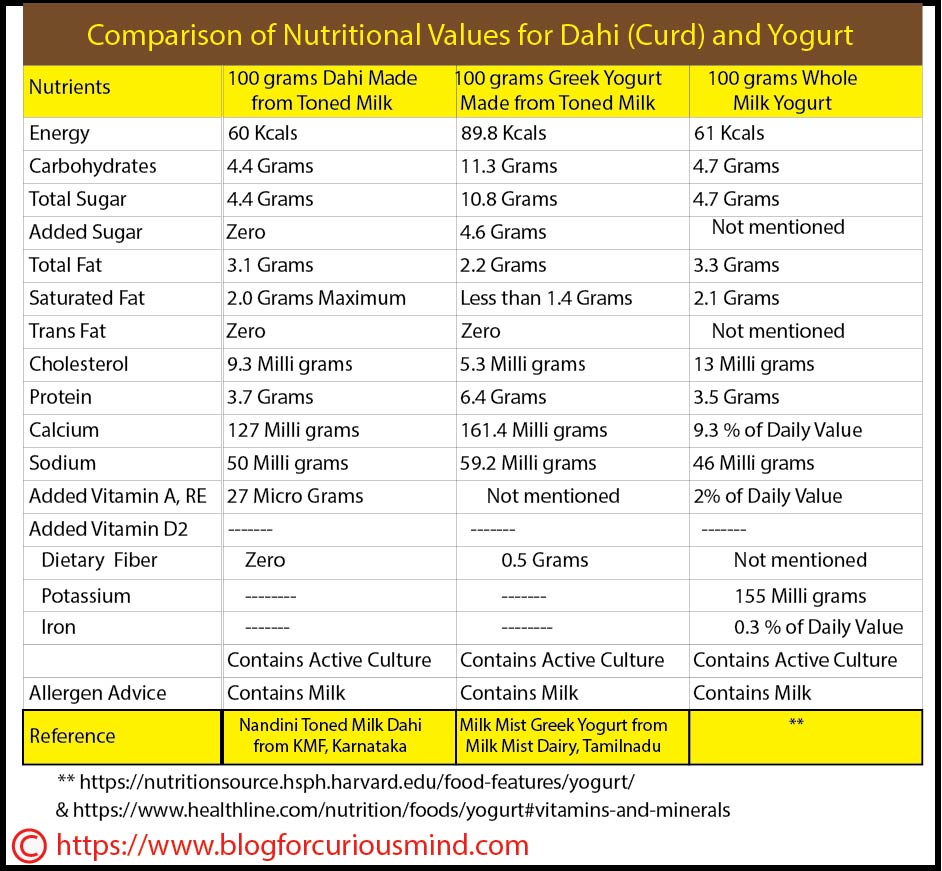Yogurt is considered a key food. Its pleasant taste makes it popular in many parts of the world, including Western countries. It comprises superior-quality proteins, calcium, potassium, and vitamins.
Some Yogurt types have live cultures (probiotics), which are considered good for our gut health. Yogurt is considered to have medicinal properties, and people who consume it may live longer.
Yogurt was known to mankind hundreds of years ago. But it was mostly made at home or at village level. Yogurt production on an industrial scale was started in Barcelona, Spain, in 1919.
Yogurt is a fermented product. It is made by mixing specific bacteria cultures, Lactobacillus bulgaricus, and Streptococcus thermophilus with boiled and cooled milk at 30-45 ⁰C (89-113 ⁰F).
The milk with culture is allowed to rest undisturbed for 5-12 hours at that temperature. It is important to maintain the temperature. The bacteria in the culture convert the lactose (milk sugar) into lactic acid and coagulate the milk with a distinct flavor.
To learn more about Yogurt and how it is made, you may read the article ‘What is Yogurt and how is it made.’
Nutrients and vitamins in Yogurt
- Yogurt has many essential nutrients including calcium and protein.
- Many Yogurts contain live bacteria cultures that are considered good for gut health and an immunity booster.
- It may be possible for people with lactose intolerance to consume little Yogurt since the good bacteria in it helps lactose digestion. However, please consult your doctor and take his/her advice before adding Yogurt to your diet.
- Compared to regular Yogurt, Greek Yogurt is thick with a creamier texture and rich in protein. The reason is Greek Yogurt is prepared by straining off the liquid whey. However, it is low on Calcium, since a part of Calcium goes with the whey.
- Yogurt is very versatile and you can eat it along with breakfast, meals, or as an afternoon snack. Yogurt is liked by children and adults, and even those who are averse to milk will say ‘Yes’ to Yogurt.
- Yogurt goes well with spicy food. It makes it more palatable for the digestive system. Plain Yogurt or plain Yogurt mixed with cut pieces of cucumber, onion, tomato, coriander, and salt can be used as a side dish for spicy food.

You can make Yogurt healthier and tastier by adding fruits and berries to it.
Always read the label on Yogurt packages to know its contents. It may contain added sugar and other ingredients which are not healthy.
Sweetened Yogurt may be a healthier option compared to ice cream. Yogurt has more proteins than Ice-cream and it is probiotic.
Health benefits of Yogurt
People with known intolerance to lactose may be able to consume a little Yogurt since it has a lower lactose concentration. However, please consult your physician before you add Yogurt to your diet.
- Yogurt may help or improve digestion due to live probiotic bacteria in it and it is considered good for gut health.
- Consumption of Yogurt may give slight relief from constipation.
- Yogurt contains vital nutrients and vitamins viz. Calcium, protein, potassium, phosphorus, and Vitamin D, that are considered good for sustaining bone density and preventing osteoporosis.
- Maintaining a good balance of gut bacteria is considered beneficial for maintaining a healthy weight and happy mood. And Yogurt consumption may help this.
- Eating a small cup of Yogurt may help you fast recovery after a workout.
You may read the following articles.
Difference between Dahi (curd) and Yogurt
What is Dahi/Curd and how it is made in Dairy
Popular Fermented Milk Products in India
Conclusion
Yogurt is a tasty and healthy fermented milk food. It has many health benefits. Hope, this article helps you to appreciate Yogurt better for all its benefits.
Caution
Consumption of Yogurt made from raw milk can cause serious illness and death. Do not make or consume Yogurt made from raw milk.
Yogurt is made from milk and contains lactose which may not be suitable for people having lactose intolerance. Do not consume Yogurt without your doctor’s advice.
References
https://www.researchgate.net/publication/355022224_The_Product_and_the_Manufacturing_of_Yoghurt
https://pmc.ncbi.nlm.nih.gov/articles/PMC6410895
https://www.webmd.com/diet/health-benefits-yogurt

